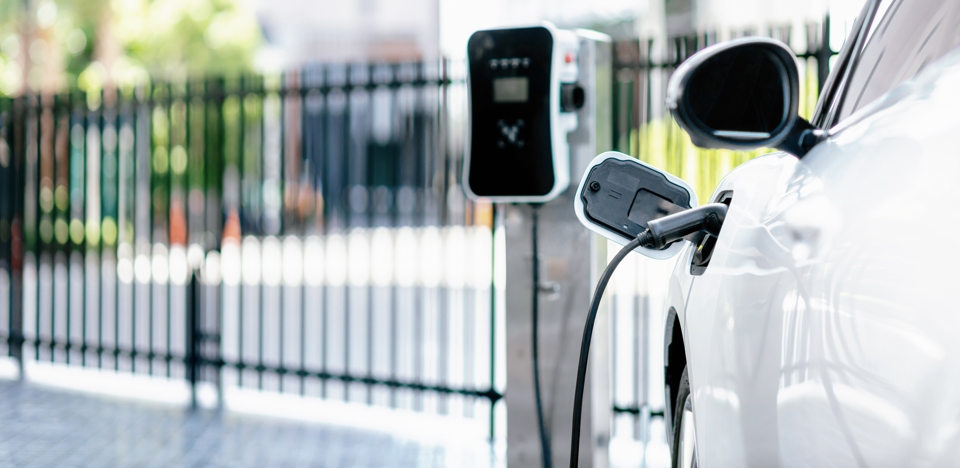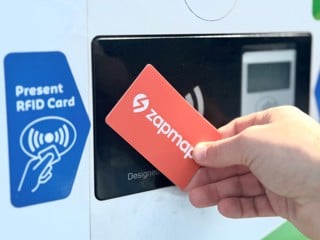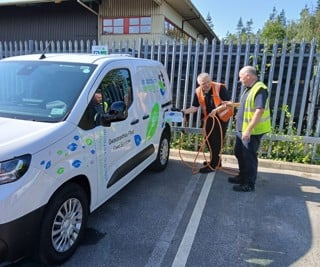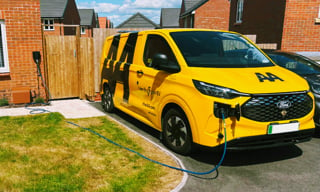Two-thirds (67%) of electric vehicle (EV) drivers would be prepared to pay a premium to reserve a public charging bay, new research suggests.
More than one-in-four (27%) would be willing to part with up to £10 and one third (33%) happy to pay up to £5, while 7% said that they would be prepared to stump up more than £10 to reserve their charging spot.
The study of more than 1,000 UK EV drivers by charge point operator SMS explores the current customer experience of using, and relying on, public EV charge points.
Despite an almost unanimous love of their EV (94%), two-thirds (67%) of UK EV drivers said that they wish they had known more about public EV charging availability before they transitioned to electric.
The SMS study says that a fifth (20%) of EV drivers surveyed remain completely reliant on public EV charging due to having no charge points available to them at home or at work.
A further 33% use public EV charge points 'a lot', with 31% only 'sometimes', and only 15% stated ‘rarely’.
More than two-thirds (70%) of EV drivers also said that they have limited public charging options in their area. Some 81% of EV drivers said that this led to them having to wait for a public charge point, with almost a third (30%) waiting 30 mins to an hour, and 27% between one to two hours before they could recharge.
Mark Winn, head of EV strategy at SMS, said: “It’s critical that the UK’s growing number of EV drivers have adequate access to fully functioning public EV charge points while they are on the move.
“However, in the race to meet EV charging expectations, targets and market share, companies have deployed – and continue to install – the wrong type of chargers, in the wrong location.
“Added to this, the payment options are either substandard or created to monopolise the market, and infrastructure maintenance seems to be firmly off the ‘to-do’ list.
“This is creating a ‘perfect storm’ of customer dissatisfaction, frustration and charge anxiety for EV drivers, and the future of electric motoring in the UK is coming under unfair scrutiny as a result. We simply must do more.”
The survey suggests that more than one-in-three (36%) of EV drivers avoid public chargers because they have been unable to use a charge point because it was broken.
Almost one-in-five (17%) of respondents have also avoided using public EV charge points because the location did not feel safe.
Winn continued: “While we need to exponentially increase the quantity of EV charge points in multiple locations this cannot be at the expense of their quality.
“Not all EV charge points are created equal, and the type required varies depending on where it’s being installed and who is using it.
“EV infrastructure always needs to be planned with three Rs in mind: right time, right location and right speed.
“EV may be a nascent market, but this doesn’t mean that there is any excuse for providing the public with substandard EV charging solutions.
“If we want to avoid a public backlash against EV adoption, then greater due diligence must be applied to EV charge point installation deals.”
UK ‘sleepwalking’ into transport crisis
The SMS report comes as Chris Wortley, managing director of intelligent parking company, Metric Group, says that the UK is ‘sleepwalking’ into a transport crisis, because investment in charging infrastructure is lagging too far behind the expected rise in sales of electric and hybrid vehicles.
“We are sleepwalking into a crisis if we don’t act now to put significant EV charging infrastructure in place,” he said.
“There could be anywhere between 8-11 million hybrid or electric vehicles on UK roads by 2030 if uptake is aligned with the Government’s Road to Zero targets. It’s critical for action to be taken quickly, if we are going to keep the country moving.”
Latest Government figures revealed there are just over 44,000 public EV charging devices installed in the UK and that distribution nationwide is inconsistent.
Wortley continued: “We are a long way off the level of provision that is needed. Unless we accelerate our plans considerably, there simply will not be enough charging points in place for everyone.
“We must act now to steer things in the right direction, because this kind of infrastructure cannot be transformed and implemented overnight.”
To help with the situation, Metric Group has launched a new initiative that will support local authorities and help them meet their charging targets.
The company is self-financing a multi-million-pound scheme, to cover the upfront costs of installing and servicing EV charge points, within existing carparks. In return, a percentage of carparking and tariff profits would be paid to Metric.
Download the SMS whitepaper ‘Powering up public EV charging: it’s time to plug in the gaps’ here.






















Login to comment
Comments
No comments have been made yet.